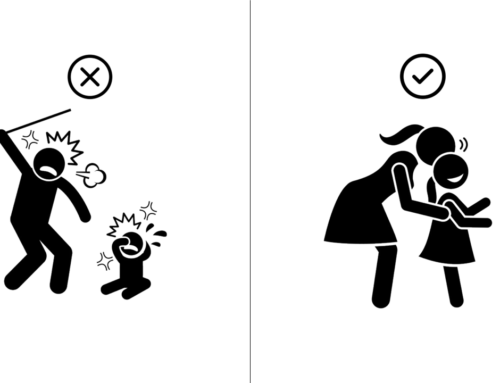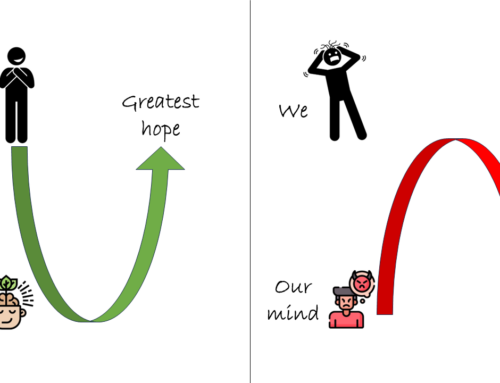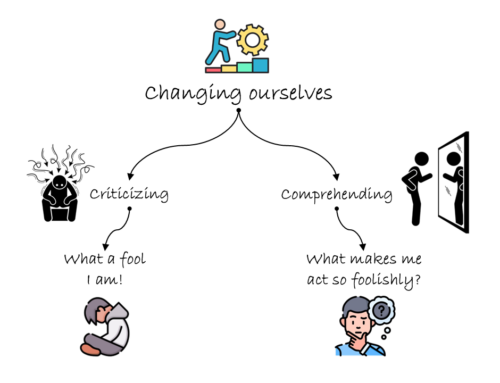Self-talk can refer to two broad things:
Something inside us talks to us: We all have a voice inside us that keeps commenting about the various things we do and the various things that happen to us. Though this voice can speak both positively and negatively, it frequently predicts gloom and doom. Gita wisdom explains that this voice belongs to the mind. Whenever something we do doesn’t work out, our mind may say, “Just see: you are no good. And you will never be any good.” Or when something external thwarts our plans, it may say, “Just see: life stinks. And it will always stink.” Such negative self-talk can be downright toxic — it can poison our will to do things better or to even do anything at all, thus dragging us down into depression and even suicidal thoughts. We need to resist and reject such self-talk.
We talk to something inside us: We can’t easily silence the unhealthy self-talk that goes on almost automatically and often unconsciously inside us. Does that mean we are helpless? Certainly not; we can start another, healthier form of self-talk, wherein we address the inner voice’s concerns. Sometimes, by rationally analyzing the issue that it is worked up about, we can calm it down. Sometimes, by reminding it of other, more important and / or urgent things, we can shift our attention to those things, thereby effectively changing the thread and tenor of our inner conversation. Sometimes, by proactively talking about the things that strengthen us, we can stump and trump the mind’s negativity.
By such consciously chosen self-talk, we can counter the unconsciously operational self-talk. And thus we can appreciate and apply the Bhagavad-gita guideline: elevate yourself with yourself; don’t degrade yourself with yourself.
One-sentence summary:
Self-talk is counterproductive when our mind speaks discouragingly to us, but it is productive when we speak encouragingly to our mind.
Think it over:
- When is self-talk counterproductive? Explain with an example.
- When is self-talk productive? Explain with an example.
- Note one specific way you can change your self-talk from counterproductive to productive.
***
06.05: One must deliver himself with the help of his mind, and not degrade himself. The mind is the friend of the conditioned soul, and his enemy as well.
To know more about this verse, please click on the image





Leave A Comment